Choosing the perfect housewarming gift for someone can be tricky: You likely aren’t yet familiar with the person’s home decor vision for their new pad, how much space they have or if they prescribe to a more minimalist lifestyle. One no-fail gift idea that every homeowner will appreciate, however, is a houseplant.
Even if your housewarming host isn’t exactly known for their green thumb, you can source a low-maintenance variety that can withstand all their inadvertent attempts to kill it. Plants also carry a number of health and wellness benefits. So which types of greenery make for the best housewarming gifts? We’ve rounded up our top choices.
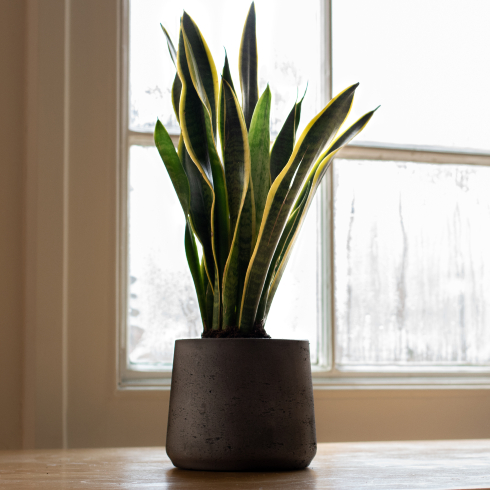
Snake Plant (Dracaena Trifasciata)
The slender snake plant, also known as viper’s bowstring hemp or mother-in-law’s tongue, is native to tropical West Africa. It has gained popularity as an excellent air purifier, capable of removing four out of the five main toxins commonly found in homes. However, it’s important to note that the plant is mildly toxic to pets. The snake plant is incredibly resilient, requiring watering only once every few months during winter due to its hardy nature.
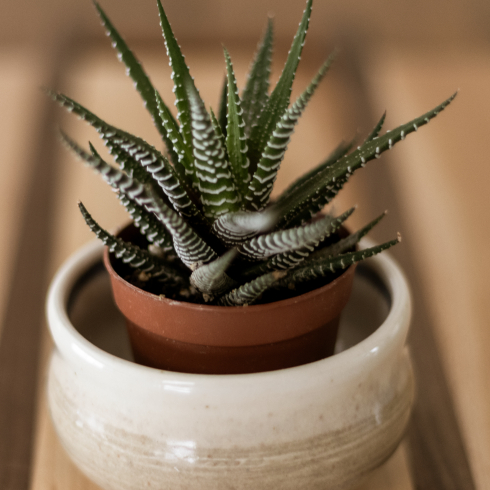
Haworthia
Haworthia plants, native to southern Africa, are a safe alternative to aloes, which can be toxic to pets and children. If you desire a succulent that resembles a small aloe, haworthia is an excellent choice and a thoughtful gift for friends with kids or pets. Haworthia plants come in various species, providing a wide selection to choose from.
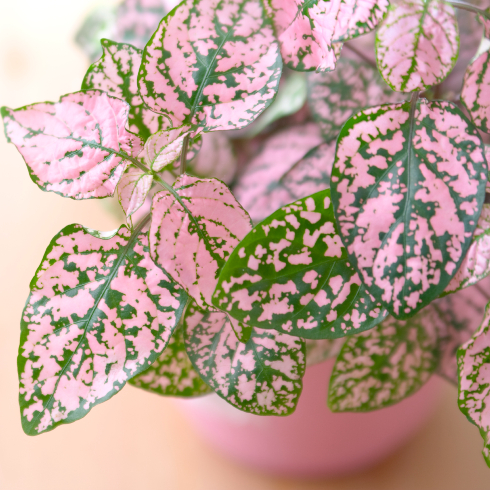
Polka Dot Plant (Hypoestes Phyllostachya)
This cute plant is named for the pink patterns that adorn its leaves. It’s the perfect addition to any home, providing a splash of colour. While it has the potential to reach up to three feet tall in its natural habitat, when cultivated indoors, it remains much smaller in size. To thrive, these plants require bright, indirect light and their soil should be kept consistently moist, particularly during the summer.
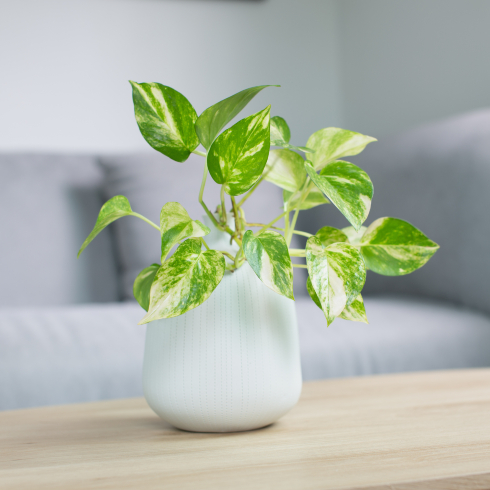
Pothos (Epipremnum Aureum)
Pothos are wonderful, underrated houseplants that are also great for gift giving. They grow well in a mix of lighting conditions, from bright indirect light to low light. There are numerous varieties that offer exotic leaf shapes and multicoloured foliage, but they’re common enough plants that they’re still quite affordable.
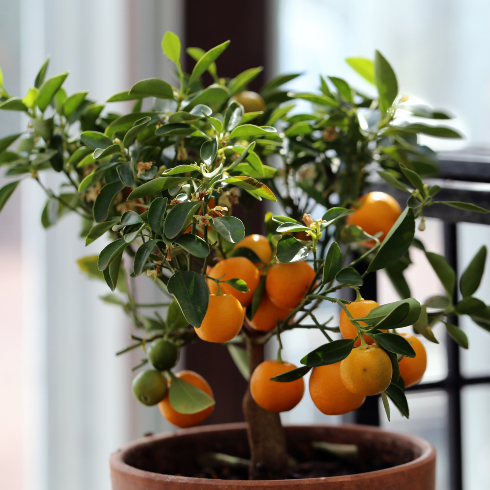
Citrus Tree
A citrus tree is a meaningful gift associated with good luck and positive energy, according to Vastu Shastra, an ancient Indian architectural philosophy. It brings joy and prosperity to a home, making it a visually appealing and thoughtful addition to any space.
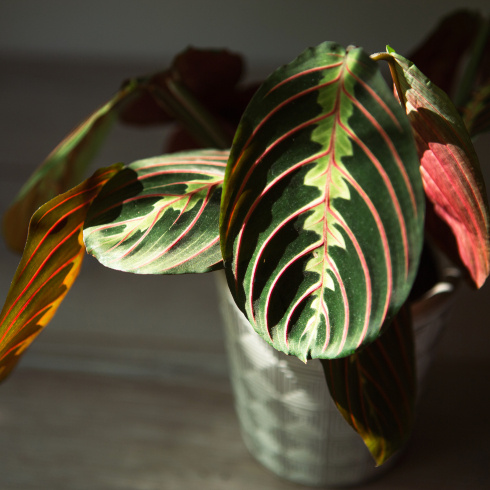
Prayer Plant (Maranta Leuconeura)
The prayer plant earns its name from the captivating way its leaves gracefully fold in the evening, resembling hands gently clasped in prayer. Originating from the rainforests of Brazil, this plant thrives in environments with bright, indirect sunlight and high humidity. It’s also safe for children, cats and dogs.
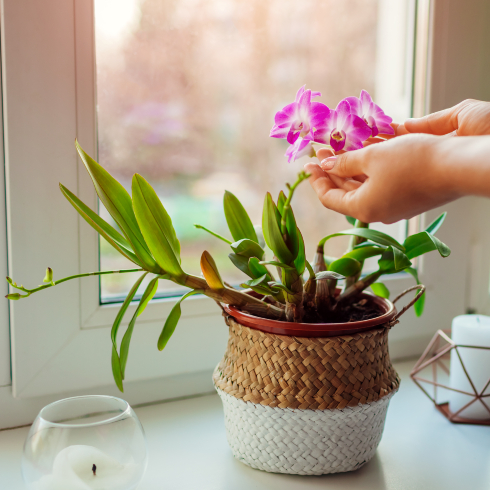
Orchid (Orchidaceae)
Orchids are a diverse group of plants, with approximately 28,000 different species. However, they all share a reputation for being hard to take care of—and they are. While they thrive in direct sunlight, they are sensitive to excessive heat. On the positive side, orchids generally only need to be watered once a week. Certain types of orchids, such as moth orchids, have the unique ability to bloom during the winter season. So we recommend only gifting orchids to friends who can handle high-maintenance plants.
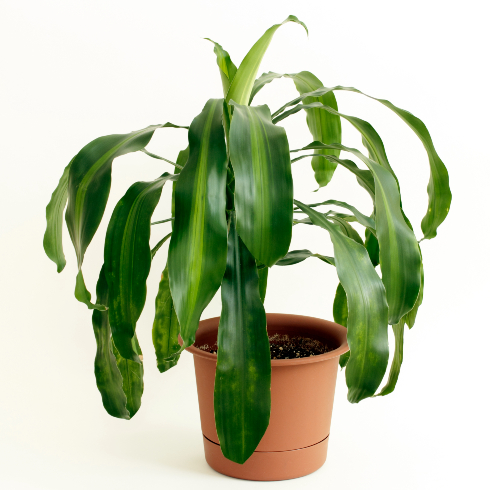
Corn Plant or Fortune Plant (Dracaena Fragrans)
Dracaena Fragrans, also known as the Corn Plant or Fortune Plant, makes a thoughtful housewarming gift. It’s thought to bring good luck, and the popular indoor plant infuses a new home with positive energy. Its vibrant foliage and easy maintenance ensure long-lasting beauty for the lucky recipients.
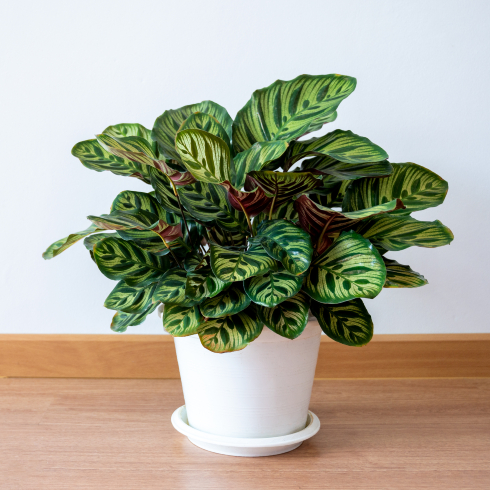
Calatheas (Calathea Sp.)
What could make a better housewarming plant than one that symbolizes new beginnings? There are some 60 calathea species, native to the tropical parts of Latin America. While they don’t usually flower when they’re kept indoors, they often have strikingly variegated leaf patterns with colours you wouldn’t expect in leaves, such as pink, red or purple. Their tendency to soak up moisture to thrive makes them one of the best plants to soak up humidity in the bathroom. They’re also safe to have around pets and little humans.
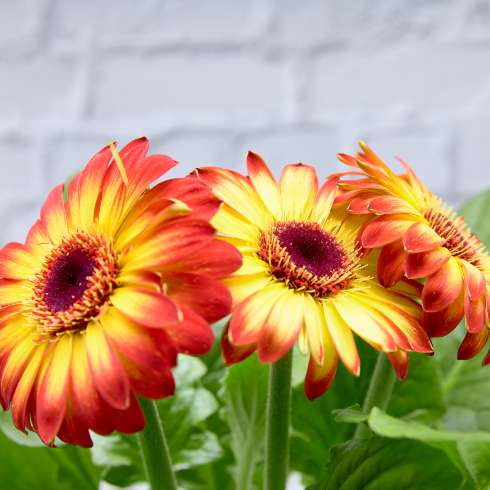
Transvaal Daisy (Gerbera Jamesonii)
Native to Southern Africa, Gerbera daisies are great gifts because they’re easy to care for, non-toxic and will add a splash of colour to any household. For a housewarming gift, you can’t go wrong with the Transvaal or Barberton variety, as its cheerful orange colour symbolizes friendship, joy and warmth.
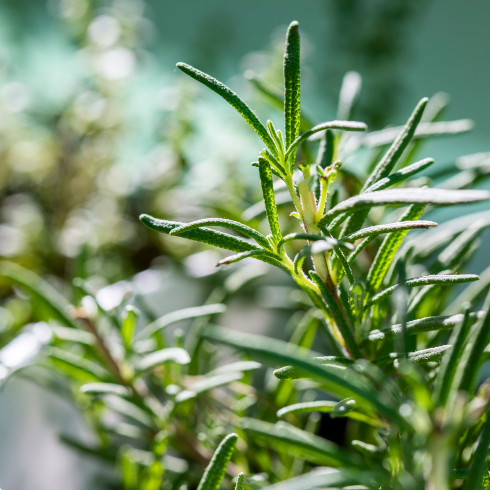
Rosemary (Salvia Rosmarinus)
Rosemary is one of the easiest herbs you can grow indoors throughout the year. It’s also one of the best housewarming plant gift ideas. Unlike so many other culinary herbs (like oregano) rosemary is perfectly safe to have around pets. It’s also a symbol of friendship and loyalty, making it the ideal gift for the cooking inclined friend in your life.
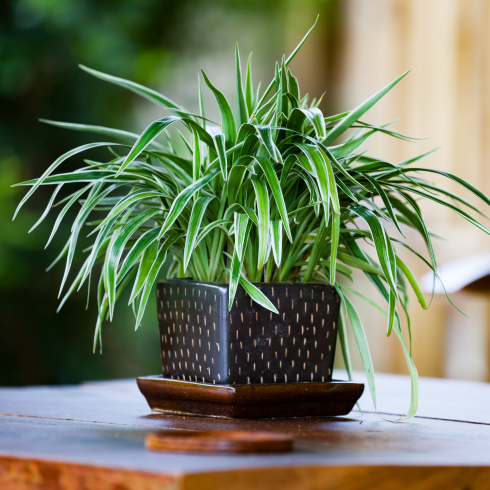
Spider Plant (Chlorophytum Comosum)
Under optimal conditions, spider plants exhibit a remarkable growth rate. Not only do they produce fresh blooms, but these blossoms eventually develop into spider plant pups, which can be snipped off and gifted to friends. Spider plants possess exceptional resilience, tolerating occasional neglect. They also thrive in low light environments.
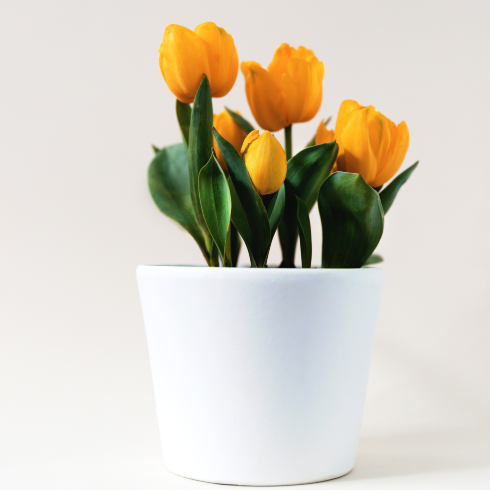
Tulips (Tulipa Sp.)
Contrary to popular belief, tulips aren’t originally from Amsterdam or anywhere else in the Netherlands. They originated in Central Asia and Southern Europe and there are around 75 species. They’re normally planted in the garden for spring blooming but you can also grow them indoors. Just keep them away from pets and tiny humans since they’re toxic.
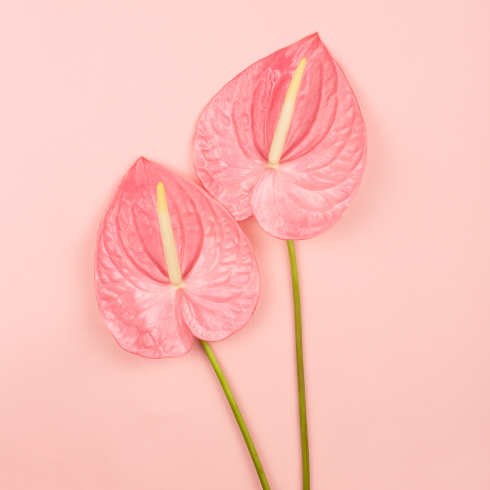
Pink Anthurium (Anthurium)
With its vibrant pink flourish, a pink anthurium makes for a great look-at-me houseplant gift. It’s the world’s longest blooming houseplant, with each blossom lasting an impressive eight weeks. The pink hue is a result of its waxy leaves. To ensure optimal flowering, it requires bright and indirect sunlight.
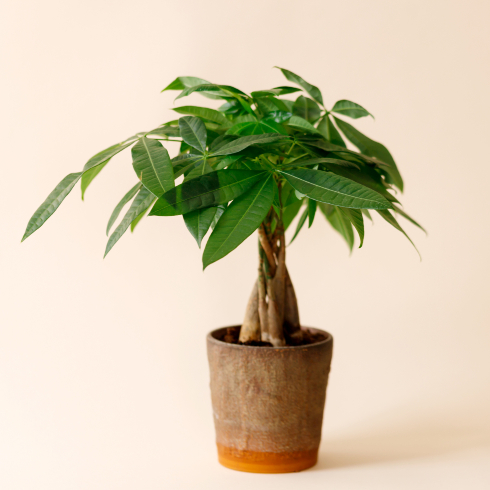
Money Tree (Pachira Aquatica)
Are you gifting a plant to someone who works from home? The money tree is a great addition to any home office, since it thrives in bright but indirect sunlight and is low maintenance. Anyone who enjoys working with a cat on their lap or a dog at their feet will love the fact that the money tree is non-toxic to pets. In East Asia, you’ll often see these plants in businesses since they’re said to bring good fortune.
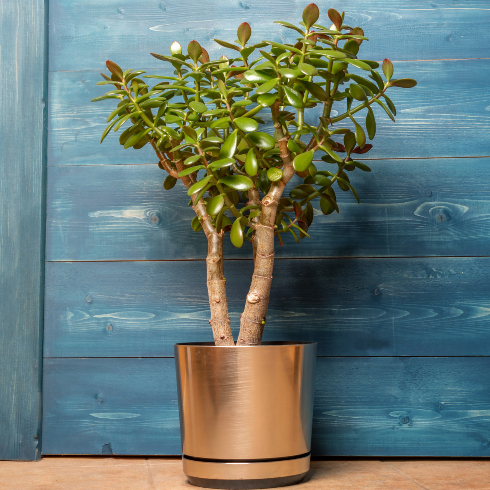
Jade Plant (Crassula Ovata)
Because it’s so easy to propagate, the jade plant is the gift that keeps on giving. It’s a succulent native to the east coast of South Africa and produces sweet-smelling pink or white flowers. It’s also considered one of the luckiest plants for your home. However, keep it where your pets can’t reach it since it’s toxic.
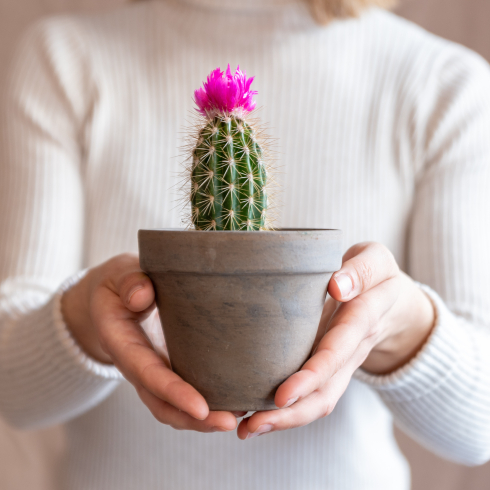
Cactus
There are some 1,750 known cactus species, mostly native to the Americas. They make ideal houseplants for beginner growers or people who tend to be a little forgetful about plant care, since they’re very low-maintenance and don’t need frequent watering. They have various symbolic meanings in different cultures, but in North American Indigenous cultures, they’re typically associated with protection and maternal love.
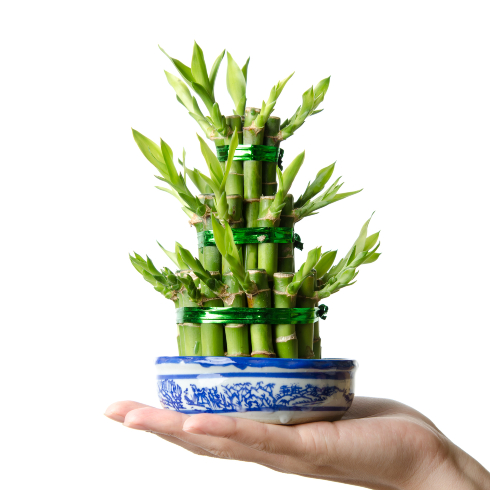
Lucky Bamboo (Dracaena Sanderiana)
Native to Central Africa, the lucky bamboo isn’t actually a bamboo but rather a perennial herb. It thrives in scattered light and confined spaces, so it’s perfect for an apartment. It’s also associated with good fortune and longevity.
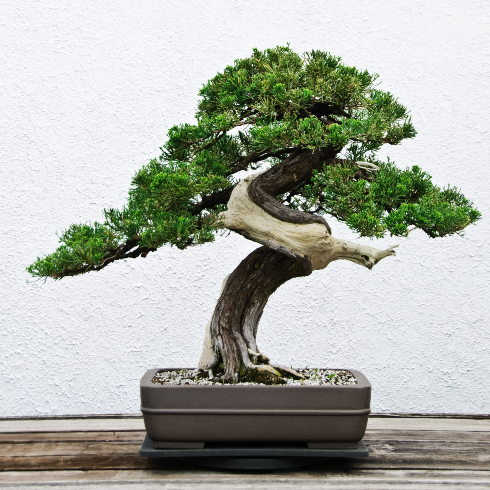
Bonsai
A plant gift that will be just as at home in a boho-inspired environment as in a Japandi decor theme is a bonsai tree. Since pruning them can be seen as a meditative experience, they symbolize patience, harmony and balance.
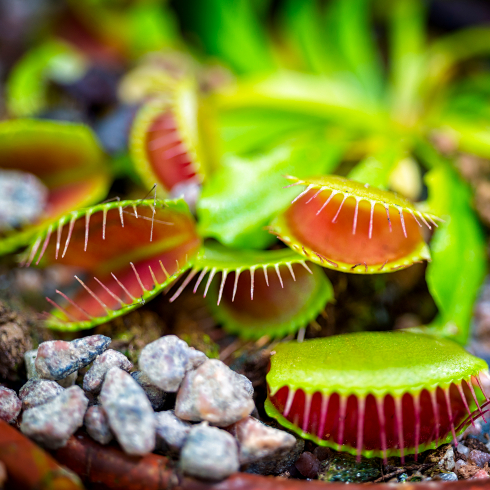
Venus Flytrap (Dionaea Muscipula)
Looking for a housewarming gift for that somewhat eccentric person in your life? As long as you’re certain they can handle one of the most high-maintenance plants, you’ll probably delight them with a Venus flytrap. These carnivorous plants are native to the Carolinas in the United States and symbolize persistence, because if they fail to catch a fly, they’ll stay shut for a few hours, as if they’re sulking, before opening up to try again.
Home Network your inbox.
By clicking "SIGN UP” you agree to receive emails from Home Network and accept Corus' Terms of Use and Corus' Privacy Policy.




